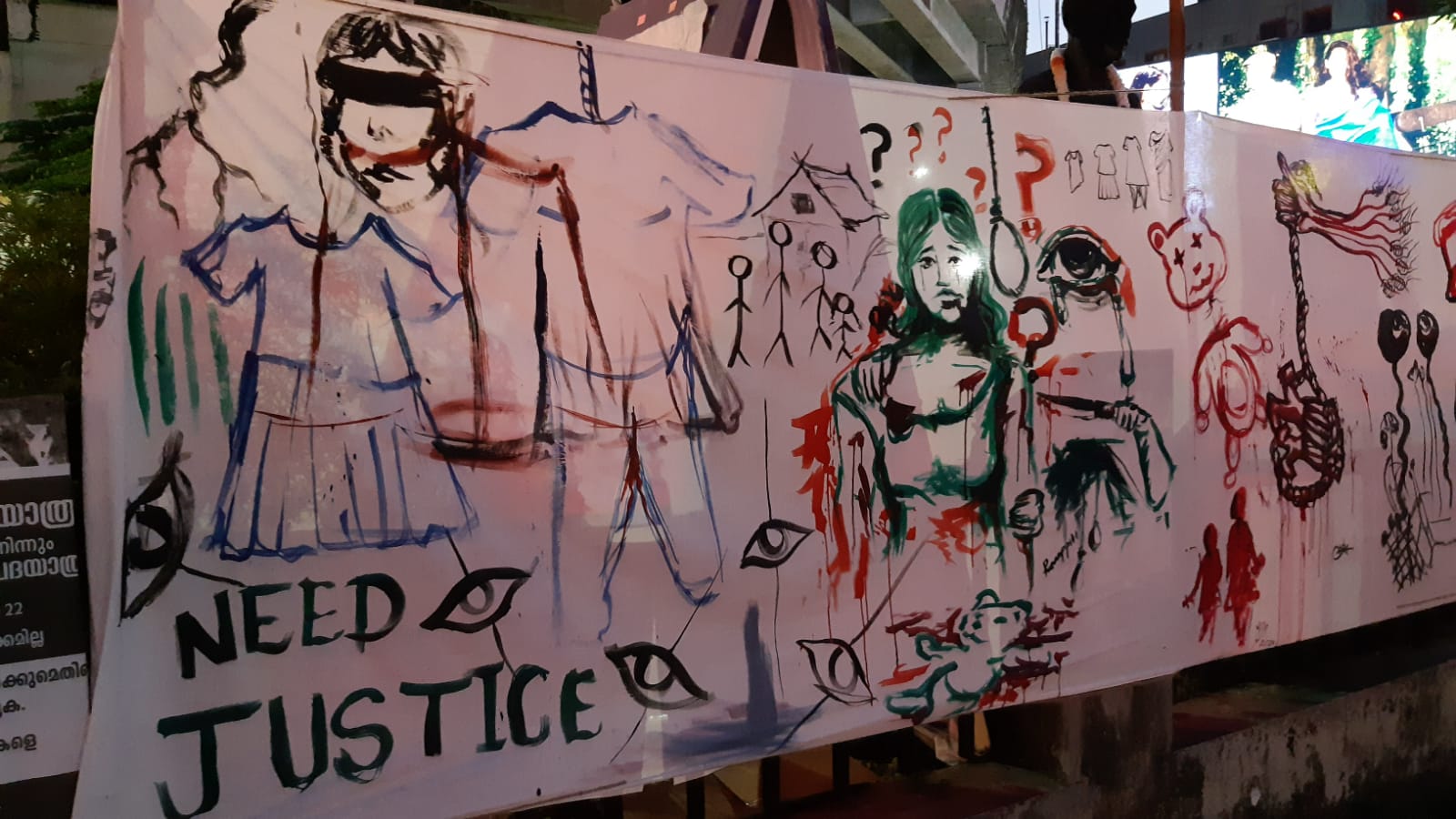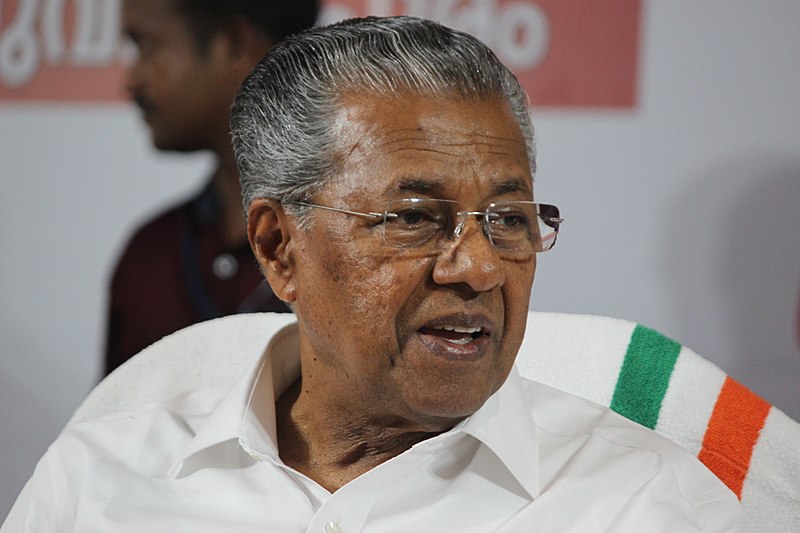A number of years ago, I was visiting my native Kerala to celebrate finishing my Master’s. My driver from the airport to my town was a family friend from the Nair caste. The Nairs were Kshatriya (warriors) that were integral to the resistance against the British. They invented the world’s oldest martial art, Kalaripayattu, which was so deadly that the British declared it illegal to carry the Kalari arms in 1804.
A far fall since those times, Nairs such as my driver were busy getting behind Hindu fascism. He spent most of the drive telling me about the Muslim threat to India, repeating xenophobic myths promoted from spaces of power.
As a point of irony, part way through his diatribe, a Rashtriya Swayamsevak Sangh (RSS) march took part of the road. The RSS is the boiling heart of Hindu nationalism in India. Not having much of a grip in Kerala, the march was sparse at just around 50 participants.
The Bharatiya Janata Party (BJP) that holds the majority of seats in India’s national assembly is closely linked to the RSS. A nascent BJP in the 80s faced a crisis because it had just a handful of seats in the national assembly.
Pairing with the RSS, the BJP campaigned for over three decades on a platform of modernization and xenophobia. Along with ending open air defecation by building toilets, the BJP also wanted to make India a Hindu nation.
To date, 2019 marked the pinnacle of this rightward march. Buoyed by a national re-election victory in the middle of the year, the BJP pushed a government decree in early August that revoked Article 370 of India’s constitution, which guaranteed special rights to the Muslim-majority state of Kashmir.
Said rights included Kashmir having its own state constitution and autonomy to make its own laws except on matters of defence, communications and foreign affairs. Before the revocation, India sent tens of thousands of soldiers to Kashmir, which is already the most militarized region on earth. It also arrested several Kashmiri political leaders, shut down the Internet and imposed a curfew.

Despite international outcry, on December 12, the BJP-led government passed the Citizenship Amendment Act (CAA). The Act was meant to help refugees from Afghanistan, Pakistan and Bangladesh who sought refuge in India before 2015. The CAA, however, excludes Muslim refugees from these countries, as well as others, including Tamils from Sri Lanka.
Following the passage of the CAA, protests broke out across the country. Some, such as those in Kerala, stood in solidarity with Muslims across the nation. Others, including in Assam and Delhi, were by people who noted that the Act would allow outsiders to take over their culture.
“The CAA gives refuge to Hindus, Christians, Buddhists and Sikhs,” said Ashraf Asheera, President of the Indian Union Muslim League (IUML) in an interview at their office in Kochi, Kerala. “But what should those [such as Muslims] who do not get refuge do?”
The IUML was one of several organizations that were part of protests last week in Kochi, the second largest city in Kerala.
“The problems that will occur are not small,” warned Asheera. “When I take my son for admission to a school, if the admission comes into the hands of a BJP person, he will ask for my son’s father’s and grandfathers’ addresses. Prime Minister Narendra Modi cannot produce these for his own case.”
Asheera pointed out another contradiction of the new Act: “If a Muslim has fought for India he won’t get refuge. But a Hindu who has fought against India will.”
Coupled with the CAA, India has seen a proposal by the BJP-led government to enact a National Register of Citizens (NRC), which would further target Muslims for deportation. Citizens would not just have to prove their own residency in India, but also that of their parents (unless they were naturalized under the CAA).
Kerala, a southwestern state of 35 million, has been ruled for decades by a state assembly that is largely Communist. It has taken a strongly anti-identity-politics and pro-secular stance towards the BJP’s new laws.

Kerala’s Chief Minister Pinarai Vijayan announced in the state assembly on the last day of December that detention centres to jail those suspected of being undocumented would never exist in Kerala. Such prisons have been proposed throughout the country.
Vijayan’s speech was book-ended with Kerala being the first state to pass a resolution against the CAA, which was unanimous except for the lone BJP supporter in the state assembly.
This stance on not vilifying Muslims strengthens the insistence of groups like IUML that Muslims make up a crucial part of India’s national fabric.
“We want everyone together,” said IUML Secretary Gafoor MH, speaking to Toward Freedom in Malaylam. “We want Hindus, Christians, Muslims, everyone. In Kochi, we are a city of many sects and religions. There are Jains, Jews, Anglo-Indians even.”
This is not Kerala’s first stand against the BJP’s national fascism. In the summer of 2017, India’s Environment Minister called for a ban against the sale and eating of beef, which some Hindus consider sacred. In Kerala, even Hindus eat beef, particularly in the form of beloved beef roast (not to be confused with roast beef, and usually paired with the flatbread porota). Residents of the southwestern state were first to flout the proposed ban: the Communist Party of India (CPI) and its student wing the Democratic Youth Federation of India (DYFI) hosted beef parties.
India’s Environment Minister, keen to curb domestic consumption, had little to say about the fact that India is the world’s largest exporter of beef.
Northeastern states also resisted the beef ban, and other regions have resisted various pushes from the BJP. Tamilnadu and other southern states pushed back against the recent idea of making Hindi India’s national language (there is currently none, though India is host to 22 regional languages, with Hindi being the language of some northern states).
Indian workers are also up in arms, as unions held work stoppages on January 8 against the anti-labour policies of the BJP government. Swaths of India may be marching to fascism under the BJP, but resistance in the hinterland states is fertile.
Author Bio
Isaac K. Oommen works in post secondary education programming, is a freelance journalist and also co-editor of New Canadian Media.
